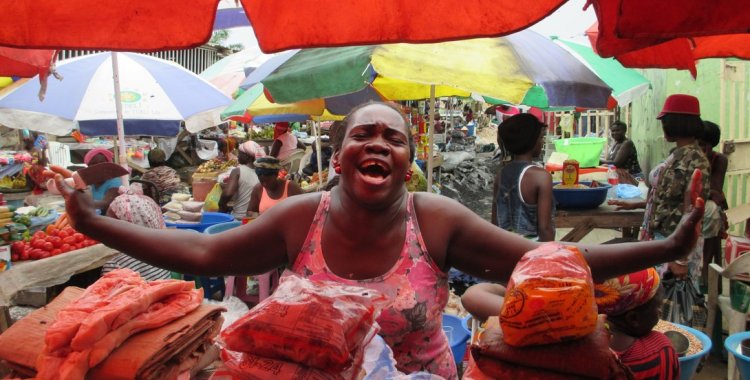Face full of discouragement, many physically weakened and others supporting themselves with a cane to be able to walk, the presence of these ladies does not go unnoticed from the early hours of the day for those who circulate in the center of Andulo, municipality where the mortal remains of the founder of the National Union for the Total Independence of Angola (UNITA), Jonas Savimbi, dead 20 years ago.
Washing clothes, dishes, carrying water and cleaning the floor are the domestic services that these women are willing to do to earn the minimum that will allow them to buy a kilo of rice or fuba (flour) for their children and grandchildren.
They regret the suffering and difficulties they face daily to feed their family and told Lusa that they do not benefit from any government social program. That's why on the street they get between 200 kwanzas and 1000 kwanzas a day, which guarantees them a livelihood.
Unable to hold back her tears, elderly Domingas Alberto, 60, told Lusa that she lives in a precarious house and on the verge of collapsing in Bairro Económico, on the outskirts of Andulo.
She tries to find small daily jobs on the street, this being her only means of survival.
"Oh father, it's really suffering, my husband is in the region, my children all died, I don't have anyone to help me. come here," he said.
Visibly desolate, sitting next to her companions on the journey, at one of the junctions in the streets of Andulo, Domingas Alberto confirmed that they are often asked for occasional domestic services that earn them up to 1000 kwanzas.
"Here on the street, sometimes they take you to wash your clothes, then they give you 1000 kwanzas and buy food for the children, that's the work we do here", she stressed, noting that she never received any social assistance.
Suzana Candembo, 38, who left the countryside for lack of seeds for cultivation, also spoke of "suffering" to justify her presence on the street, where she can get between 200 kwanzas and 300 kwanzas daily, which is insufficient to feed five children.
The single woman said that she is willing to do "any housework", namely washing clothes, carrying water, washing dishes or cleaning floors.
"Sometimes, people come to ask us, I arrived here at 06:00 in the morning and I have to return home at 4 pm or 5 pm when I find some work, when I don't return at 1 pm", she explained.
It is also in the streets of Andulo, one of the nine municipalities in the province of Bié, central/southern Angola, that Ana Paula, 38 years old and single, is there every day to alleviate the suffering and guarantee food for her three children.
"It's really suffering. I have three children and I arrived to wash clothes, clean the floor and carry water and then they can pay 1000 kwanzas to buy food for the children", she said.
The search for temporary domestic service takes place in places where these women are usually concentrated, but many roam the streets of the center of Andulo, even accompanied by their grandchildren.
Germana Vihemba, 66, a widow, lives in Bairro Silva, where she leaves every day looking for work, which doesn't always show up, to buy food to feed the children.
"The job is to carry water, wash clothes, clean the floor and when they pay you can buy cornmeal for the children to eat. I have five children at home and here they can pay us 500 kwanzas or 600 kwanzas", he told Lusa, expressing himself. upset by the lack of support from the authorities.
These women are the face of poverty and "suffering": "we are suffering a lot", they repeat.







